Major Power Relations
Your Present Location: PROGRAMS> Major Power Relations-

Wang Wen: It's the US, stupid!
One hundred Chinese scholars published "An Open Letter to the People of the United States from 100 Chinese Scholars" in The Diplomat. It appeals for solidarity between China and the US and calls for an end to politicizing the pandemic and demonizing other countries. On Friday, more than 90 prominent figures in US security, diplomatic, business and academic circles also signed a letter calling on the Trump administration to work more closely with China to end the pandemic. The two letters echo each other. Officials and prominent figures from more than 20 countries have expressed their support for the Chinese scholars' letter seeking solidarity and stopping of the blame game.
2020-04-07 -
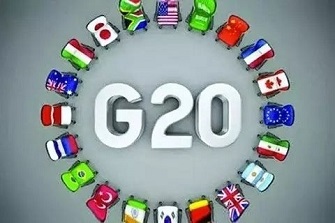
Zhao Minghao: The G20 summit is an urgent step in fight against COVID-19 and economy stabilization
The convening of the G20 emergency summit is a right and urgent step in increasing global coordination and stabilizing economic confidence on the fight against COVID-19. At present, the virus has spread to more than 150 countries, and nearly 500,000 people have been infected worldwide, with the number of confirmed cases and death still rising rapidly.
2020-03-27 -
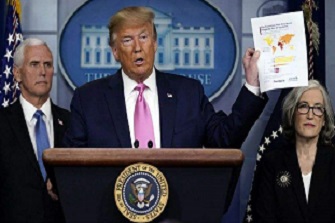
John Ross: US policy on China won’t changeTrump's anti-China coronavirus rhetoric will cost many lives
US President Donald Trump has launched xenophobic attacks on China over COVID-19 with only one purpose – to attempt to divert attention from his failure to prepare the US for the inevitable spread of the coronavirus. But this anti-China rhetoric will have serious consequences for the American people, leading to many lost lives. Trump’s attack on China is a futile attempt to head off what will be the inevitable verdict of history on a disaster for the American people. If continued, it will cost many American lives.
2020-03-26 -
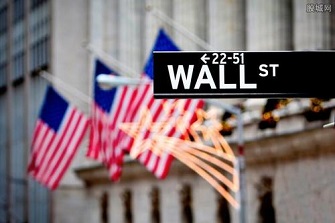
He Yafei: Who Has the Advantage?
The foreign policy of the United States has undergone major changes in recent years. From the Obama administration’s passive response to great-power competition to the Trump administration’s targeting of China and Russia as major strategic rivals, the U.S. has officially given up unipolarity in favor of the new era of great-power competition.
2020-03-25 -
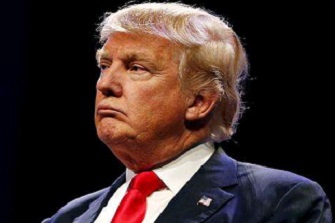
William Jones: Trump's blame game could put American lives at risk
Anyone who has watched Trump's daily briefings with the White House coronavirus task force he set up, can clearly see that the U.S. views this more and more as a zero-sum game with China, which through diligent efforts and the nation coming together, had succeeded in getting to a point where there are no, or very few, new incidents of the virus.
2020-03-23 -
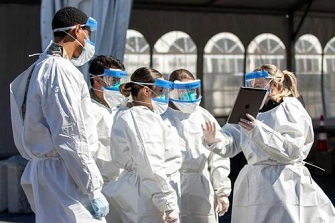
US spin on virus' name condemned
Some US politicians attempting to politicize the novel coronavirus have come under fire as officials, scientists and experts on international relations warned that such stigmatization would undermine international solidarity in containing the pandemic.The warning came after some senior US officials connected the virus with China. They include US President Donald Trump, who described the coronavirus as the "Chinese virus" on social media and a White House media briefing, although Director Robert Redfield of the US Centers for Disease Control and Prevention said using the word Chinese as a way to describe the coronavirus is wrong.
2020-03-20 -
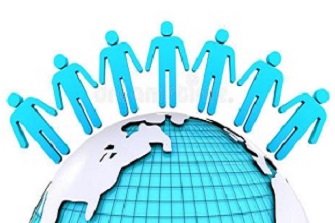
Ding Gang: China, ASEAN see interconnectivity strengthen
The pandemic has had a strong impact on the Southeast Asian economy and around the world. The main export destination for China and Southeast Asian products is the US and European markets. As China has been gradually resuming economic activities, its consumption needs will help the recovery of the Southeast Asia industrial sector. For instance, China can purchase Southeast Asian products as supplements to imports from other parts of the world.
2020-03-19 -

Zhao Minghao: The spread of COVID-19 calls for China-U.S. cooperation
With the COVID-19 spreading fast in the U.S., the Trump administration has declared a national emergency. Analysts in China have been closely following its economic and political impact on the U.S. and also the virus has turned into an important factor shaping the U.S.-China relationship in the near future.
2020-03-18 -

Wang Wen: The US owes an apology to the world
The virus is spreading worldwide. The number of new international confirmed cases per day has surpassed China at least 10 times. At this stage, the world needs unity. The US, as the world's most powerful country, should have called on other nations to help combat what has become a common enemy, just as they did during World War II. Unfortunately, they have made no such efforts. After observing the words and deeds of the US administration and other elites, I realized their accusations against China were aimed to divert attention, conceal inaction, and dodge long-standing flaws in US foreign policy.
2020-03-10 -
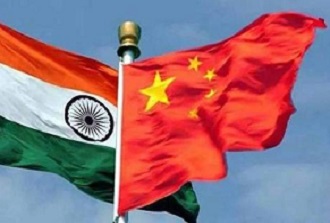
Liu Zongyi: India’s attempt to provoke China over Da Cui Yun incident must be countered
Last year, the Indian Navy blatantly expelled a Chinese scientific research vessel on the high seas near the Andaman Islands, and this year India created an excuse to seize the Da Cui Yun vessel. The Da Cui Yun incident has revealed the arrogance of the Indian government and its governing Hindu nationalists. To consolidate its supremacy in South Asia and the Indian Ocean, India not only has resorted to every means to discredit, isolate and crack down on Pakistan, but also has been trying to act as a "police officer" in the Indian Ocean.
2020-03-09 -
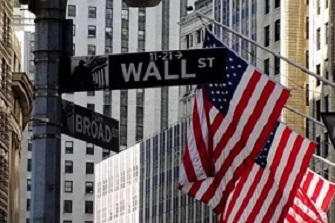
He Weiwen: The Abrupt FED Rate Cut: for Fighting COVID-19 or for Stock Market?
The sudden US Federal Reserve rate cut of 50 base points on March 3 was exceptional by any standard. It was not decided at its regular board meeting as the next one will be two weeks later. The urgent action was triggered only by Wall Street crash last week and the extreme pressure from President Donald Trump. FED rate cut shows little help to the fast spread of COVID-19 in US and even mislead the stock market. US President Trump’s effort may be a disaster to US future economy.
2020-03-05 -
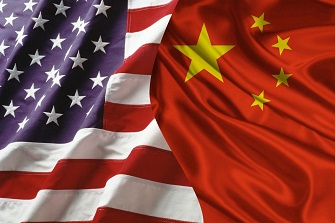
US Cap on Chinese State Media Employees a ‘Return to McCarthyism’
The US Department of State announced Monday that Beijing’s state media entities operating in the US will be subjected to a 100-employee cap, restricting the organizations’ ability to produce content in the US and, as one expert tells Sputnik, the right to free speech.John Ross, a senior fellow at Chongyang Institute, Renmin University of China, and an award-winning resident columnist with several Chinese media organizations, joined Radio Sputnik’s Loud and Clear to discuss the Trump administration’s recent decision and give his opinion on why it came about.
2020-03-04 -

Wang Wen: Virus fight offers cooperation opportunities
I do wish US elites would be more empathetic and far less hypocritical. They need to stop applying a double standard over the virtues of democracy, freedom and human rights which they have always respected. In the face of disasters, pandemics, and climate changes, no country or family can survive on its own - China, the US, and all other countries need to join hands and stop focusing only on their self-interests.
2020-03-03 -
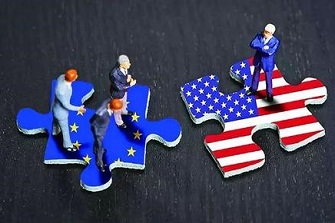
China-US game and China’s revival in the perspective of the comparative strength changes of the two countries
2020-02-25 -
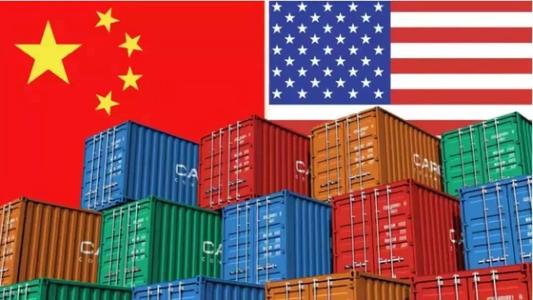
China points tariff exemptions for US imports
China on Friday launched a listing of tax-exempt items from US imports which had been slapped with tariffs within the commerce struggle, paving the way in which for extra purchases of US merchandise amid the unfold of COVID-19, which displays an interdependent commerce relationship, analysts stated. To exempt merchandise from one another, although not a part of the part one commerce deal, was a scheduled transfer geared toward mitigating strain for industries and corporations from each nations, specialists near the deal instructed the World Occasions on Friday.
2020-02-24 -

He Weiwen: Flu outbreak reveals US’ true colors
While people in China and around the world are actively cooperating to combat the novel coronavirus pneumonia (COVID-19) outbreak, some US politicians and media are making accusations against China, questioning the effectiveness of its response to the epidemic. However, the US sees frequent outbursts of influenza, and its government not only reacts with extremely low efficiency but also remains silent. The contrast has revealed a US double standard.
2020-02-20 -
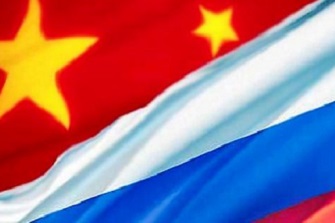
Sergey Glaziev: 'Russia supports' China's fight against outbreak of coronavirus
Measures taken by Chinese government to fight the coronavirus epidemic are impressive. The whole world is delighted with the speed and scale of the measures taken to prevent the spread of infection, as well as the cohesion and discipline of the Chinese people facing a new health threat.For us (Russia), China is a strategic partner with a long friendship and cooperation. The two heads of state have repeatedly talked about mutual friendship, cooperation and support, highlighting the importance of joint opposition to external threats by using such Chinese expression as "back to back" and Russian expression as "shoulder to shoulder".
2020-02-19 -
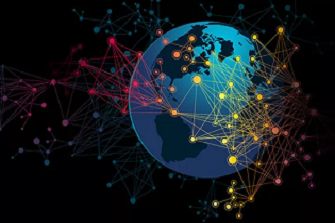
William Jones: Nobody likes a bully
U.S. Secretary of State Mike Pompeo and his sidekick and fellow West Pointer, Defense Secretary Mark Esper, descended on the Munich Security Conference (MSC), like Batman and Robin into Gotham City, to "save" the people from the "evils" lurking around them, in this case China and Russia. "The West is Winning" Pompeo trumpeted triumphantly to what must have been a surprised audience, gathered to discuss how the Cold War was over and that new forms of collaboration between nations had to be established.
2020-02-18 -

Wang Wen: Too Early To Talk About China-U.S. P2 Trade Agreement
China and the US signed the phase one (P1) trade agreement on Jan. 15, 2020. Additionally, in a recent interview, US Vice President Mike Pence said that negotiations for the phase two (P2) trade agreement are already under way. But in my opinion, the top priority now for the two powers is deciding how to ensure the implementation of the phase one trade agreement.
2020-02-17 -
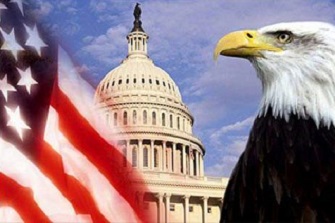
He Yafei: Challenges for China in U.S. Election Year
The U.S. general election this year will be a special one in American politics. Bilateral ties will see greater uncertainty, and relations will be even more difficult to handle. All of this suggests China needs to maintain strategic calm, think from a long-term perspective, adhere to principles, observe developments with a cool mind and avoid jumping to rash conclusions about certain matters as they suddenly crop up.
2020-02-17
























































































 京公网安备 11010802037854号
京公网安备 11010802037854号





